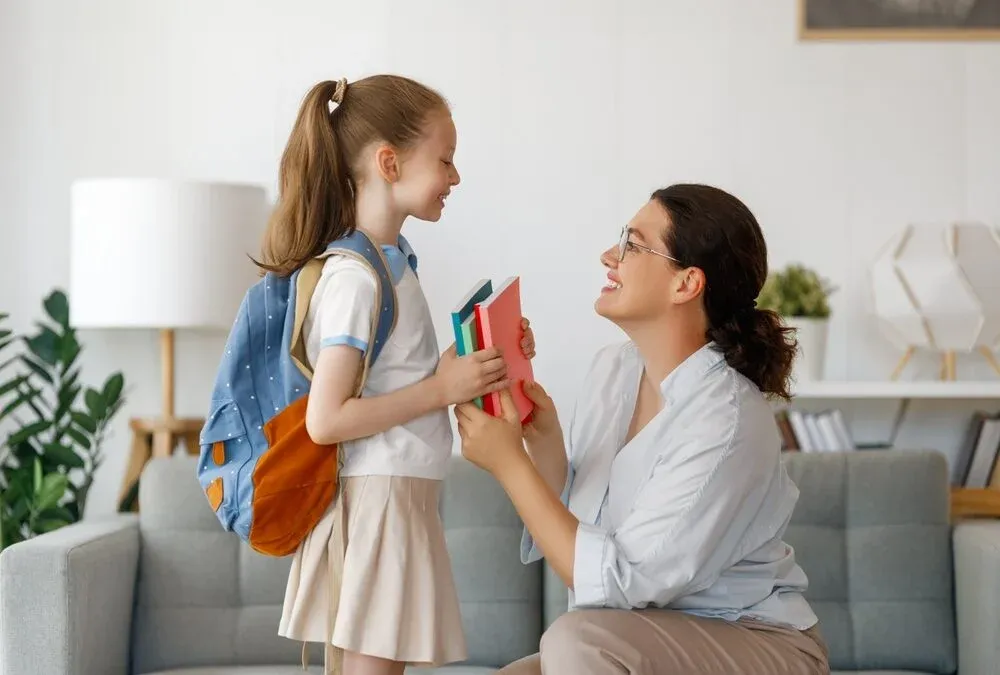Harmony in
Neurodiversity
THE BLOG
Welcome to Harmony in Neurodiversity, a blog dedicated to exploring the profound impact of music and positive parenting strategies on the lives of neurodivergent individuals. Join Samantha, a board-certified Neurologic Music Therapy fellow and a passionate Positive Discipline Parent Educator, as she shares her expertise in leveraging the power of music and effective parenting approaches to support and empower neurodiverse communities.
In her blog posts, Samantha delves into the intricate connections between music and the brain. She explores how specific musical elements and interventions can enhance cognitive functions, regulate emotions, improve communication, and promote social interaction among neurodivergent individuals. Through insightful articles and case studies, she demonstrates how rhythm, melody, and lyrics can serve as powerful tools for therapeutic interventions, fostering growth and self-expression.
Positive Discipline Parenting Strategies:
Drawing from her expertise as a Positive Discipline Parent Educator, Samantha sheds light on nurturing positive relationships between parents and neurodivergent children. Her blog offers practical advice, evidence-based strategies, and real-life anecdotes that empower parents and caregivers to cultivate respectful, encouraging, and effective parenting techniques. From setting clear boundaries to fostering a supportive environment, Samantha guides readers in navigating the challenges and joys of parenting neurodiverse children.
Exploring Intersectionality:
Samantha doesn't limit her discussions to singular approaches. Instead, she delves into the intersectionality of Neurologic Music Therapy and Positive Discipline Parenting, illustrating how these methodologies complement each other. Through her insightful content, she showcases how the harmonious integration of music-based interventions and positive parenting strategies can create holistic support systems for neurodivergent individuals, promoting their well-being and personal growth.
Community Engagement and Resources:
Additionally, Samantha fosters a vibrant online community where readers can engage, share experiences, and seek advice. She curates a wealth of resources, including recommended readings, workshops, and practical tools, empowering her audience to implement valuable insights into their lives effectively.

Back-to-School Tips for Parents of Kids with ADHD and Autism
The transition from summer break to a new school year can feel overwhelming for any child, but especially for kids with ADHD, autism, or other forms of neurodivergence. New routines, sensory challenges, and social changes can quickly overload a child’s nervous system. As parents, we can make this transition smoother by preparing ahead of time and honoring our children’s unique needs.
Here are seven practical back-to-school tips for parents of neurodivergent kids:
1. Protect Your Child’s Nervous System
For kids with ADHD or autism, too much activity can lead to meltdowns and burnout. During the school year, their nervous system may need extra downtime.
Limit after-school activities if your child needs time to recharge.
Prioritize calm evenings at home when possible.
Remember: rest is just as important as academics or enrichment.
By balancing activity with rest, you help your child regulate better and enjoy school more.
2. Build Excitement About School
Some children dread school, while others can’t wait to go back. No matter where your child falls, find something they’re genuinely excited about and highlight it:
Friends and social time
Favorite subjects like art, PE, or music
Special routines like library visits or recess
This helps reframe school as something to look forward to rather than something to fear.
3. Practice Coping Skills for Stressful Moments
Transitions can trigger anxiety for kids with autism or ADHD. Preparing ahead gives them a sense of control. Practice “what if” scenarios together, such as:
What if the classroom feels too loud? (Use noise-canceling headphones.)
What if I can’t find the lunchroom? (Ask a teacher or a classmate.)
What if I feel overwhelmed at recess? (Choose a safe space to take a break.)
These coping strategies reduce anxiety and help kids feel ready for challenges.
4. Do a Lunchbox Run-Through
One of the most overlooked back-to-school struggles for kids is lunchtime. Short lunch periods and tricky packaging can add stress. Practice at home by:
Packing your child’s lunchbox and having them open everything on their own.
Timing meals so they can finish eating in about 15 minutes (the average school lunch break).
Avoiding items that require adult help, like hard-to-open juice pouches.
This builds independence and ensures they’ll actually eat at school.
5. Attend School Events Before the First Day
Anxiety often comes from the unknown. Back-to-school nights, supply drop-offs, and classroom tours can help reduce stress by showing kids exactly what to expect. Walk them through:
Where to line up in the morning
Where lunch, PE, and recess will be
Who their teacher is and where their classroom is located
This preparation is especially helpful for autistic children who thrive on predictability.
6. Prepare for Classroom Differences
Every teacher has a different system for handling school supplies. Some classrooms collect supplies for communal use, while others require each child to keep their own. Talk to your child ahead of time so they’re not surprised when their favorite markers or crayons end up in a shared box.
This small step can prevent big meltdowns for kids who struggle with sharing or unexpected changes.
7. Focus on the Basics for Kindergarten Readiness
If your child is starting kindergarten, focus on foundational skills that make the first few weeks easier:
Writing or recognizing their name
Following simple routines like unpacking their backpack
Knowing how to ask for help when they need it
Don’t stress if they’re still learning, just let the teacher know where your child is and keep practicing at home.
Back-to-School Success Is About Support, Not Perfection
Back-to-school doesn’t have to mean chaos and meltdowns. By focusing on your child’s nervous system, practicing coping strategies, and preparing them for what to expect, you can set them up for a calmer, more confident school year.
Remember: parenting a neurodivergent child is not about perfection, it’s about connection. Give yourself grace, love the child you have, and know you’re not alone in this journey.
For more detailed tips, listen to Episode 127 on the Every Brain is Different podcast.


